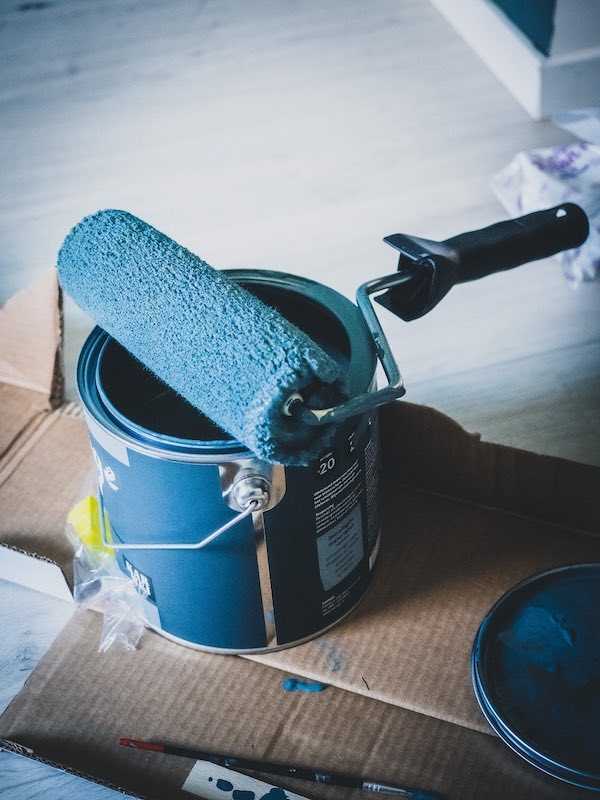What Credit Score is Needed to Buy a House?
If you’re in the market to buy a house, there’s more to think about than how many bedrooms you need or square-footage; getting a handle on your credit score is an essential step that is vital to think about early on. Why is your credit score so important? If you’re like the majority of people looking to buy a home you’ll probably need a mortgage loan, and mortgage lenders take a strong look at your credit score when determining whether to approve you and what rate to give you.
You might think a couple of percentage points on your mortgage rate won’t break the bank, but it can really add up over time. With savings like $50,000 at stake, it’s never too early to start preparing your credit for a big step like buying a home.

What is the minimum credit score to qualify for a mortgage?
The minimum credit score required for a mortgage depends on the type of mortgage loan you’re looking at. There are tons of types of mortgages: from fixed rate to adjustable rate, and government sponsored and private programs. In general, the credit score requirements vary the most based on whether you’re looking at a conventional loan or a government-backed loan.
Conventional Loan: Conventional loans are mortgages issued through a bank or a private lender, but the loan’s criteria must conform to standards established by Government Sponsored Enterprises (“GSEs”) known as Fannie Mae and Freddie Mac. These standards include a variety of requirements pertaining to loan amount, income, employment history, and the underlying real property in addition to your credit score. A credit score of 620 is typically the minimum required to qualify for a conventional mortgage.1 Some lenders will offer conforming loans with lower down payments, which can be as low as 5%, but other lenders may not participate in these programs. Typically, mortgage insurance is required with down payments less than 20%.
Government-Backed Loans: Government-backed loans are mortgages that are issued by a bank or private lender but are also directly insured or guaranteed by one of several governmental agencies. These mortgage programs typically offer more flexible requirements because of the extra protection that the government insurance or the guarantee provides the lender. That flexibility can come in the form of a lower credit score requirement, a lower down payment requirement, or both. There are several government-backed mortgage programs, but here are the most common:
- Federal Housing Administration (FHA) loans are most frequently used by first time home buyers and are often easier to quality for compared to a conventional mortgage. They are popular because they allow homebuyers with a strong credit score to put down as little as 3.5% for their down payment. With a 3.5% down payment, the minimum credit score allowed is 580. A borrower with a credit score of 500-579 may be able to qualify for an FHA loan if they provide a 10% down payment.2 Borrowers who get an FHA loan are typically required to pay for mortgage insurance, which will increase their monthly obligations. In cases where a down payment of less than 10% is made, mortgage insurance is required for the life of the loan. The amount of the mortgage insurance you will have to obtain is related to your down payment, with lower down payments requiring a higher mortgage insurance premium payment.
- VA Home Loans are designed to help veterans and active service members purchase homes with little or no down payment. Similar to FHA loans, VA loans are issued by private lenders and then backed by the government (in this case, the Department of Veterans Affairs). Every lender is different, but most VA-approved lenders require a minimum credit score of 620 to qualify and most all VA loans require some sort of financed funding fee instead of mortgage insurance.
- The United States Department of Agriculture (USDA) home loan is a zero-down payment mortgage for eligible rural and suburban homebuyers who meet certain income requirements, which vary based on location and household size.3 These loans are issued through the USDA loan program, also known as the USDA Rural Development Guaranteed Housing Loan Program, by the United States Department of Agriculture.
Typical Minimum FICO scores by mortgage type:
- Conventional Loan: 620+
- FHA Loan: 580+
- VA Loan: 620+
- USDA Loan: 640+
What is a Good Credit Score to Buy a House?
Meeting the minimum credit score requirement for a lender may not always be enough. Lenders look at more than just your credit score, but a higher score will likely position you for better approval odds, less stringent requirements, and better rates. So, what�’s a good score? It depends on the lender, but in general, a borrower with a score below 740 is likely to incur additional underwriting scrutiny, higher interest rates, and stricter requirements on their conventional mortgage. Everyone’s situation is different, but a score of 740 or better will put you in a better position to secure the best possible mortgage rates.
What else do mortgage lenders look for?
A strong credit score is vital when buying a home, but it’s only one piece of the puzzle. In addition to this three-digit number that lenders use to sum up your credit health, most lenders consider specific elements of your credit report such as your on-time payment history, your credit utilization ratio, and any negative marks on your report.
Beyond the information from your credit report and credit score, lenders will want to know a bit more about your financial situation. This may include:
- Your income level compared to your monthly debt payments (also known as your debt-to-income ratio)
- How much money you have in savings
- Where you’re getting the funds for your down payment
- Your employment history
- The value and condition of the home you’re buying
How to Improve Your Credit Score
It’s never too early to start building an excellent credit score, but if you’re gearing up to buy a house, here are a few specific things to keep in mind:
- Know your credit score and review your credit reports for accuracy. Pay close attention to open accounts, balances, and your addresses on file. Lenders may ask you to explain certain items from your credit report, so it’s best to start with an accurate report!
- Make all of your payments on time. Always. Your payment history is the biggest factor in your credit score, so it’s essential that you demonstrate to potential lenders that you can repay your debts responsibly.
- Pay down your existing debts. A high debt load, or a high debt-to-income ratio, can signal to lenders that you won’t be able to afford your new mortgage payment. Bringing down your debt level as much as possible before applying for a mortgage may improve your approval odds. One thing to note: think twice before consolidating credit card debt or closing old accounts. These activities could negatively impact your credit utilization ratio, which can drag down your credit score.
- Avoid inquiries. A few hard inquiries generally don’t have a big impact on your credit score, but multiple inquiries in a short period can imply that you’re desperate for credit. Best to avoid applying for credit unless you truly need it. There’s one important exception, which is that it’s okay to shop around for the best mortgage rate – more on this in a moment.
- Avoid large purchases. Any big change in your asset levels, savings, or debt-to-income ratio can impact your loan eligibility.
Final tips for getting the best mortgage rates
Buying a home is a big decision, and a small difference in your mortgage rate can make a big impact on your bank account over time. As you prepare for the journey into homeownership, here are a few things to keep in mind that can help you secure the best rates and the most savings
- Understand your credit situation, and start working on it. Today. Knowing where you stand is the first step – so monitor your credit score and review your credit reports for accuracy and areas for improvement. Start taking action today to improve your score.
- Know what lenders look for, and plan accordingly. Review the minimum requirements to qualify, and focus your efforts on meeting those requirements and working with the right lenders. For example, if you have less-than-perfect credit or you only have the funds for a 5% down payment, consider an FHA loan.
- Don’t be afraid to shop for the best rate, within reason With mortgages, the credit scoring companies know it’s a good idea to shop around for the best rate. They generally treat multiple inquiries for the same type of loan during a certain time window as a single hard inquiry. The time window varies from 14 to 45 days, depending on the scoring agency company. Feel free to apply with more than one lender in search of the best rate—just do it quickly.
Bottom Line
Buying a new home is an exciting milestone that can turn challenging or stressful if you’re not prepared. Knowing that you’re well-positioned to secure the best rates and savings will make the process easier and it starts with getting your finances and credit in check early on. Take the steps to evaluate your score and understand any ways to improve your credit health before you take the leap into home ownership. To get more credit tips and resources visit Credit Health Insights.


